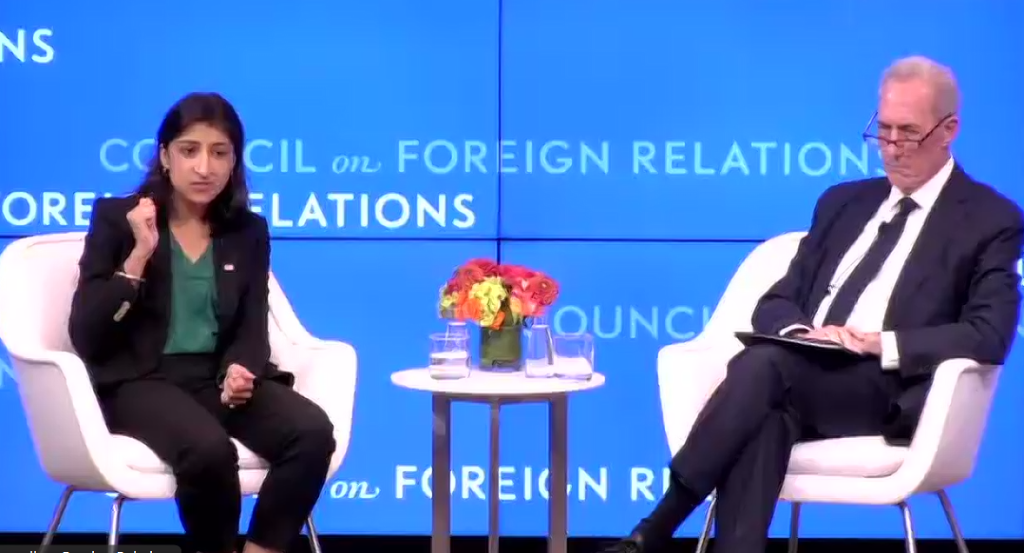Chair Khan Says FTC Monitoring Post-Chevron Legal Climate
Congress likely needs to be 'very explicit in its delegation to agencies,' Khan said.
Ted Hearn

WASHINGTON, September 21, 2024 – Federal Trade Commission Chair Lina Khan said her agency is responding to the new regulatory landscape created by recent Supreme Court rulings designed to check the power of administrative agencies.
"For federal agencies across the board, we're having to monitor that very closely," Khan said late Friday afternoon here at the Council on Foreign Relations. "Overall we are seeing more skepticism around just assuming that agencies can do certain things and a greater desire to see Congress be very explicit in its delegation to agencies."
In June, the Supreme Court ruled in Loper Bright Enterprises v. Raimondo that federal courts may not defer to agency interpretation of ambiguous laws passed by Congress, overturning the Chevron Doctrine established in 1984.
The other case – West Virginia v. EPA (2022) – bars agencies like the FTC and the Federal Communications Commission under the major questions doctrine from addressing legal issues of vast economic and political consequences without clear authorization from Congress.
During her tenure, Khan prohibited non-compete clauses in employment contracts before a federal judge blocked the rules. She is also developing "click-to-cancel" policies that would require sellers to make it as easy for consumers to cancel their enrollment as it was to sign up. The cable TV industry has opposed the effort.
When asked specifically about the demise of the Chevron Doctrine, Khan suggested that the Supreme Court's Loper Bright ruling created a problem for the FTC in particular because of its broad mandate to protect competition.
Khan said that in a 1914 law, Congress called on her agency to prohibit "unfair methods of competition" – a deliberately general directive because she said Congress "wanted the law to be able to evolve and stay relevant even as there were evolutions in business models and technologies and markets, so they wanted that institutional durability."
But that approach might not pass muster with today's Supreme Court.
"If instead we're going to now have courts second guess that type of broader delegation, then that's ultimately going to be something that Congress has to revisit," Khan said.
Asked by CFR President Michael Froman if she thought Congress was ready to tackle that role, Khan replied, "It's an open question." Some in the audience started to laugh.









Member discussion